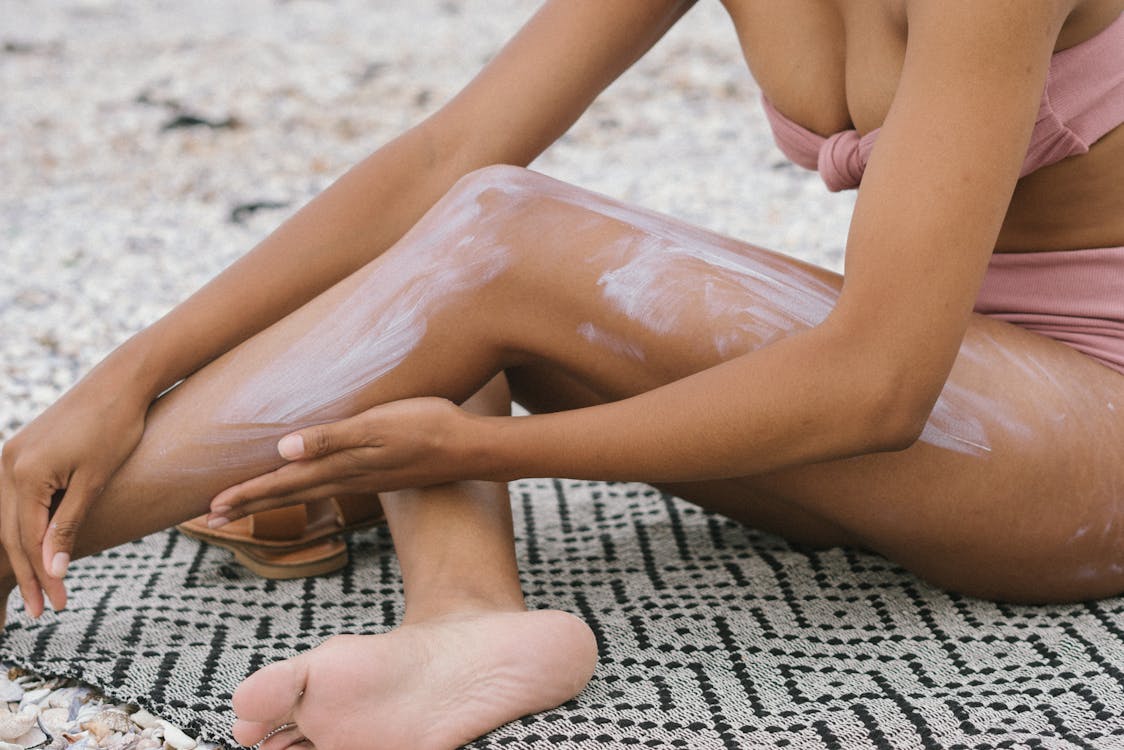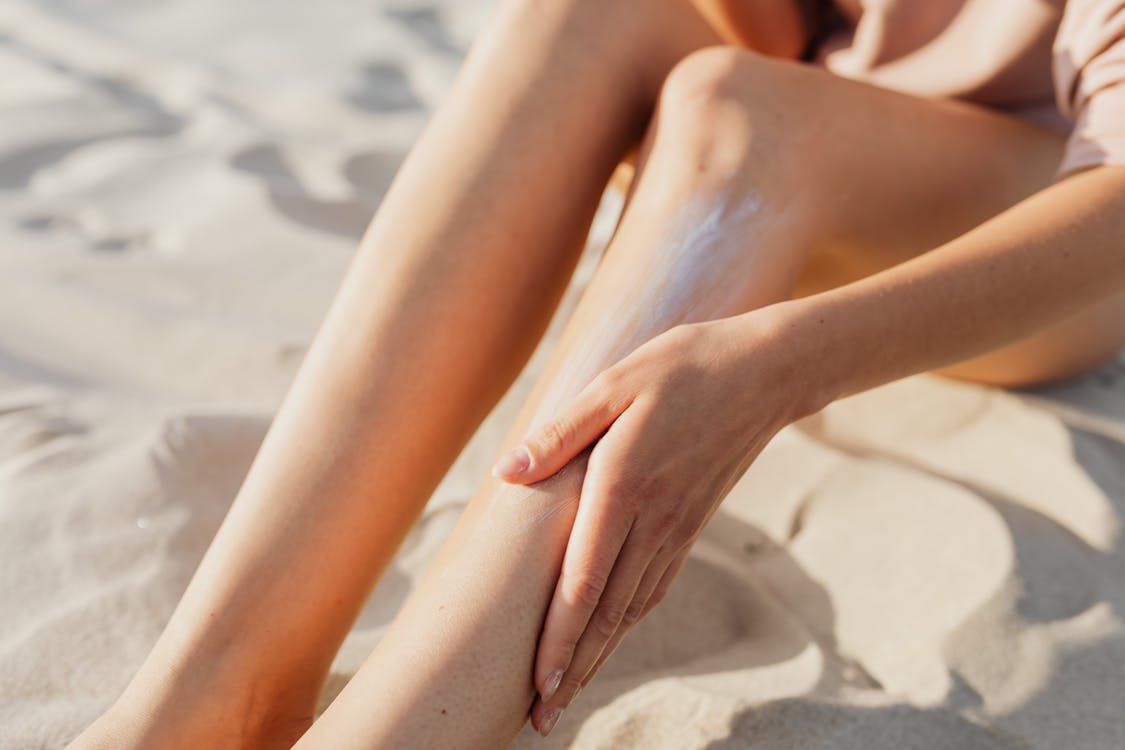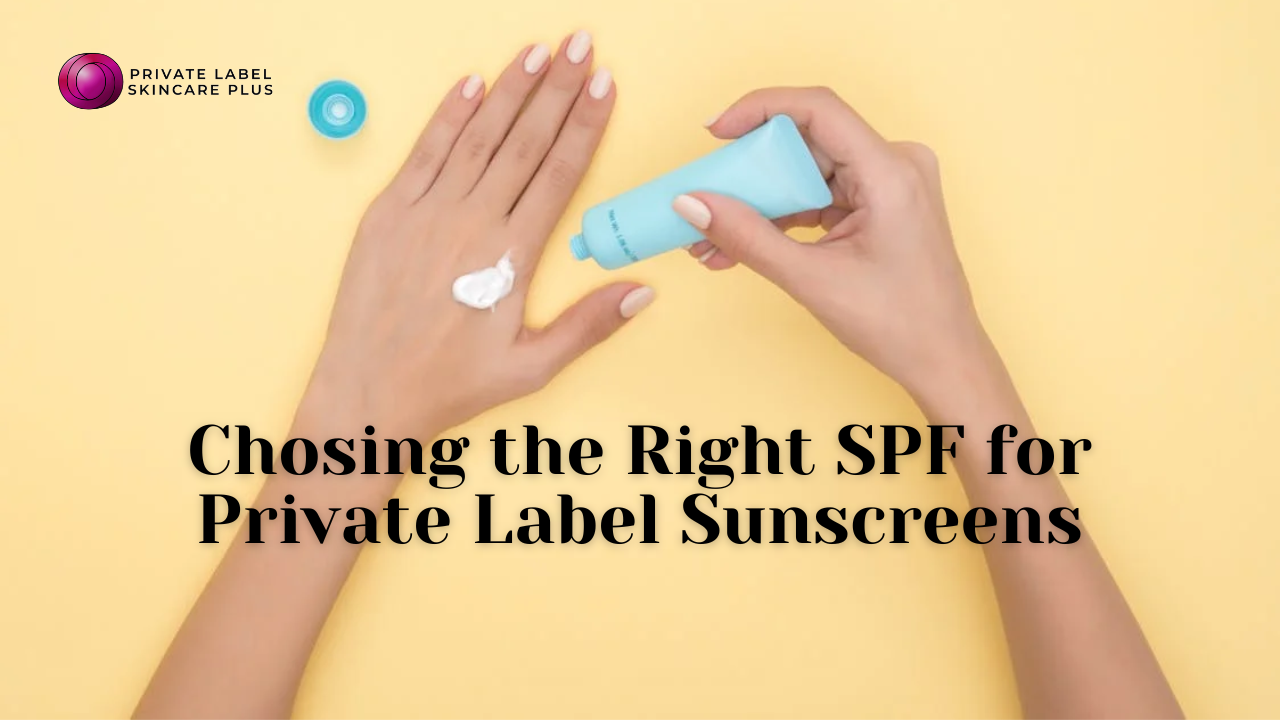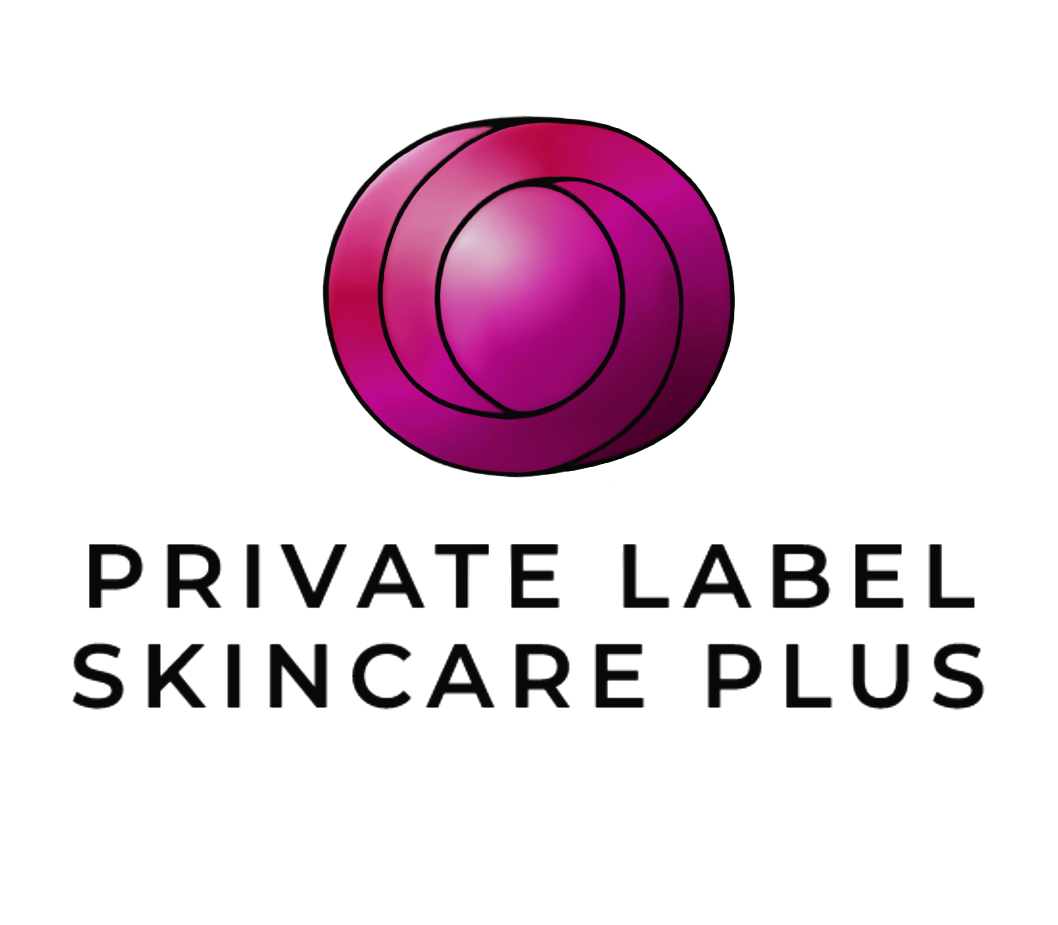Sunscreen is an essential part of any skincare routine. With skin cancer being the most common form of cancer in the United States, protecting yourself from the sun’s harmful ultraviolet (UV) rays is crucial. This article dives into the science of sunscreen, focusing on Sun Protection Factor (SPF) and how private label brands can choose the right SPF for their target audience.
Importance of Sunscreen in Skincare and Skin Cancer Prevention |
Skin cancer is a prevalent concern, affecting millions of people globally. Ultraviolet (UV) radiation from the sun is the primary culprit behind skin cancer development.
UV rays come in two main forms: UVB rays cause sunburn and increase skin cancer risk, while UVA rays penetrate deeper, contributing to wrinkles, age spots, and some skin cancers. Sunscreen acts as a shield, absorbing or reflecting these UV rays to protect your skin.
What is Sun Protection Factor (SPF)? |
Sun Protection Factor (SPF) is a numerical rating system that indicates a sunscreen’s effectiveness in filtering UVB rays, the primary cause of sunburn. SPF signifies the amount of additional time you can spend in the sun without burning compared to no sunscreen.
For example, an SPF 30 sunscreen allows you to stay in the sun 30 times longer than you would without sunscreen before burning.
Here’s a table outlining the increased protection time provided by different SPF levels:
| SPF Level | Increased Protection Time (%) |
| 15 | 93% |
| 30 | 97% |
| 50 | 98% |
| 70 | 98.5% |
It’s important to remember that SPF is not a measure of complete sun protection. Even high-SPF sunscreens need to be reapplied every two hours, or more frequently if swimming or sweating.
Sunscreen Types and Ingredients |
Sunscreens fall into two main categories: chemical and physical (mineral).
Chemical Sunscreens
These sunscreens absorb UV rays and convert them into heat, which is then released from the skin. Common chemical sunscreen ingredients include avobenzone and octinoxate. Chemical sunscreens tend to be lighter in weight and offer a sheer finish, making them cosmetically appealing. However, they can sometimes irritate sensitive skin and raise environmental concerns due to potential effects on coral reefs.

Physical Sunscreens (Mineral Sunscreens)
Physical sunscreens work by sitting on top of the skin and reflecting or scattering UV rays away. Zinc oxide and titanium dioxide are the most common ingredients in physical sunscreens. These sunscreens offer broad-spectrum protection against both UVA and UVB rays, making them a good choice for sensitive skin. However, they can leave a white cast on the skin and have a thicker consistency compared to chemical sunscreens.
Choosing the Right SPF for Your Private Label Brand |
When developing your private label sunscreen line, selecting the appropriate SPF level is crucial. Here are some factors to consider:
–> Target Audience:
- Skin Type: Individuals with fair skin or a history of sunburns will benefit from higher SPF sunscreens (SPF 30 or higher).
- Activity Level: People who spend extended time outdoors or engage in water activities need water-resistant, broad-spectrum sunscreens with a high SPF.
–> Broad-Spectrum Protection:
Regardless of SPF level, ensure your sunscreen offers broad-spectrum protection, meaning it protects against both UVA and UVB rays.
–> Formulation and Aesthetics:
Consider the cosmetic appeal of your sunscreen. Private label brands can look into lightweight formulas with a sheer finish to cater to consumer preferences.
As a Private Label Skincare Brand, You Must Also Consider |
- Regulatory Compliance: Sunscreen products are regulated by governing bodies like the FDA in the US. Ensure your sunscreen adheres to all relevant regulations for labeling and safety.
- Water Resistance Ratings and Labeling: Water-resistant sunscreens can maintain their effectiveness for a set period while swimming or sweating. Clearly indicate the water resistance duration (e.g., 40 minutes) on your sunscreen label.
- Product Differentiation and Branding Strategies: Develop a unique selling proposition (USP) for your private label sunscreen. This could involve focusing on organic ingredients, reef-safe formulations, or offering a specific texture or finish.

How to Overcome the White Cast Challenge in Sunscreens? |
As a sunscreen brand aiming to minimize white cast, here are some strategies to consider:
| Utilize Micronized Zinc Oxide and Titanium Dioxide | Particle size plays a big role in white cast. By using micronized versions of these mineral UV filters, the particles become smaller and blend more seamlessly into the skin, reducing visibility. |
| Explore Alternative Ingredients | Newer, non-nano mineral filters like zinc oxide PCA and microencapsulated zinc oxide can offer better transparency while maintaining UV protection. |
| Formulation Techniques | Employing special emollients and dispersing agents can help distribute the mineral UV filters more evenly, minimizing clumping and white cast. Techniques like milling and shearing can also break down larger particles for better spreadability. |
| Chemical-Mineral Combinations | For a balanced approach, consider a hybrid sunscreen that combines a low percentage of chemical UV filters with micronized mineral filters. This can offer broad-spectrum protection without a heavy white cast. |
| Silicone-Based Formulas | Silicones can create a smoother texture and help the sunscreen spread more evenly, reducing the appearance of white cast. However, be mindful of choosing non-comedogenic silicones that won’t clog pores. |
| Tinted Sunscreens | Offering tinted versions of your sunscreen can provide additional coverage and help camouflage any residual white cast, particularly for individuals with deeper skin tones. |
It’s also crucial to rigorously test your sunscreen formulations on a diverse range of skin tones and under different lighting conditions to ensure minimal white cast. Plus, feedback from testers can help you refine your formula for optimal performance.
Polishing Your Private Label Sunscreen Brand |
Educating consumers about sun safety and the importance of SPF is vital. Private label brands have a responsibility to provide safe and effective sunscreen options tailored to diverse needs. By understanding the science of sunscreen and carefully selecting SPF levels and ingredients, private label brands can contribute to sun protection awareness and promote healthy skin for their customers.
Sunscreening FAQs |
Q. What is the difference between chemical and mineral sunscreen?
Chemical sunscreens absorb UV rays, while mineral sunscreens reflect them. Mineral sunscreens are generally gentler on sensitive skin but can leave a white cast.
Q. If I have SPF 50 sunscreen, do I never need to reapply?
No. All sunscreens break down over time under UV exposure. Reapply sunscreen every two hours, and more frequently if sweating or swimming.
Q. My private label brand targets athletes. What SPF level should I consider?
For active individuals, an SPF 30 or higher water-resistant sunscreen is recommended.


